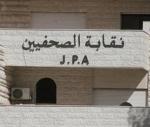You are here
Raqqa for Aleppo?
May 24,2016 - Last updated at May 24,2016
At least three major offensives are taking place almost simultaneously in both Iraq and Syria, and somehow there are all connected.
On Monday, Iraqi Prime Minister Haidar Al Abadi announced the beginning of a long-awaited military operation to recapture Fallujah in Al Anbar province.
The city with over 100,000 residents today was taken in January 2014 by Daesh, among other towns and villages in the vast Sunni province.
Last week, the Iraqi army expelled Daesh from Al Rutba, a strategic town near the Jordanian border and on the Amman-Baghdad Highway.
The international coalition will provide air support for the advancing Iraqi troops on Fallujah, a city of historic symbolism since the US invasion of Iraq.
The city was instrumental in resisting American occupation and later in expelling Al Qaeda militants from most of the province almost a decade ago.
Residents are fearful of a repetition of Al Ramadi scenario of a few months ago, when Iraqi troops levelled the Daesh-held city, resulting in heavy civilian casualties.
Observers believe the Fallujah offensive will act as a rehearsal for the bigger challenge of recapturing Mosul, a major Iraqi city that was easily overrun by Daesh two summers ago.
The timing of the Fallujah operation is crucial. It comes at a time of heightened political tensions that have crippled the political machinery in Baghdad.
Abadi hopes that the liberation of Fallujah will somehow strengthen his position as he tries to restructure a new Cabinet and negotiate a deal with a divided parliament.
But the operation is risky as well. Sunni figures have warned that they will not tolerate any role for the notorious Popular Mobilisation forces, which are largely Shiite and led by Iranian officers.
These forces are accused of having committed atrocities against Sunnis in Tikrit and other areas last year.
A victory in Fallujah is unlikely to contain or reduce political problems in Baghdad.
On the other hand, the Americans are taking the initiative in northern Syria where Commander of the United States Central Command General Joseph Votel paid a secret 11-hour visit to an American camp not far from the Daesh de facto capital of Raqqa.
There he met with Kurdish and Arab rebel groups, mainly the Syrian Democratic Forces (SDF), and talked about plans to launch an offensive on Raqqa, which Daesh occupied in 2013.
The US-backed SDF has been making significant gains against Daesh-held positions in recent weeks.
Earlier in the week, coalition aircraft dropped flyers on the city asking residents to leave, and there were reports that civilians have been seen abandoning Raqqa and heading towards Der Ezzor and northern Aleppo countryside.
The Americans are depending on the SDF to lead the offensive and take over Daesh-controlled areas. But it is not clear if these fighters, assisted by US Special Forces, have the capability to recapture Raqqa at this point of time.
One thing that is a source of concern for Arab residents, who make up a majority in some of these areas, is that Kurdish troops will seek to displace them in order to widen areas under their control.
Certainly Turkey, which is not joining the military campaign, will be watching this latest development.
Coinciding with the Raqqa events is the fact that Russian aircraft have intensified their bombing of the Aleppo countryside, in direct violation of a shaky truce that is about to collapse.
The Americans declined a Russian invitation to launch joint air strikes against extremist rebel groups, primarily Al Nusra Front.
The Russians appear to have changed their position over sparing Aleppo and are now providing air cover to advancing Iranian, Hizbollah and regime forces, with the intent of taking the city or tightening the siege against the rebel-held parts of it.
Last week, these pro-regime forces suffered heavy losses at the hands of rebel groups.
The Russians are also looking the other ways as the Damascus regime intensifies its indiscriminate bombing of Daraya and other towns in Ghouta, close to the capital.
The coming few days will be crucial in deciding the fate of these towns, especially in light of the inter-fighting that has broken out between two Islamist opposition groups.
All these developments are taking place against the backdrop of a waning political process in Geneva where the special UN envoy, Russia and the US have been unable to agree on a date to resume talks.
The opposition has refused to end its suspension unless military hostilities stop. This is now unlikely.
The question is has the US abandoned Aleppo to its fate in return for a free hand to end Daesh’s control of Raqqa?
The US has toned down its criticism of Russia’s repeated violation of ceasefire and is now focused more on the objective of defeating Daesh in both Iraq and Syria.
It is also walking away from the so-called moderate opposition groups.
The new US approach will further deepen Turkish and Saudi mistrust over Syria, raising new questions about the shape of the end game.
It will certainly change the structure of front lines in Syria’s evolving geopolitical map.
The writer is a journalist and political commentator based in Amman.












